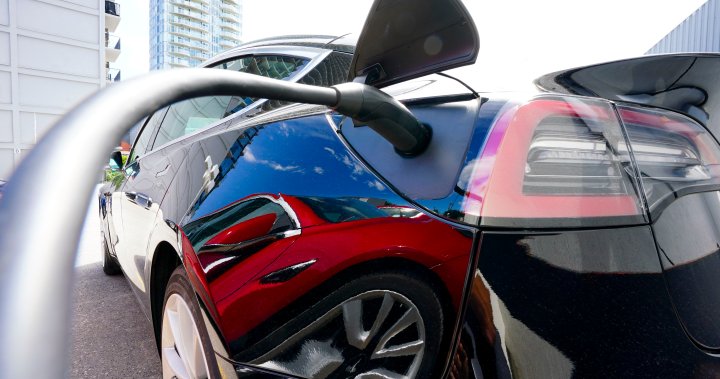Experts have warned that the federal government’s Clean Fuel Regulations, which came into effect on Saturday, may lead to higher gas prices for some Canadians at the pump.
The regulations, first announced by Prime Minister Justin Trudeau’s government in 2016 and finalized last year, aim to reduce pollution by improving the cleanliness of gasoline and diesel fuels.
Unlike carbon pricing, which directly impacts consumers, these regulations target gasoline and diesel refiners and importers. These industries are required to either decrease their own emissions and generate credits or purchase credits from other sources.
While the costs are not directly passed on to consumers, the companies that have to pay for credits may indirectly transfer the costs.
“The Clean Fuel regulation applies to gas and diesel and it requires a reduction in carbon intensity,” said Bob Larocque, president and CEO at Canadian Fuels Association, to Global News.
The concept of carbon intensity refers to the overall life cycle of crude oil, including production, processing, transportation, and use of gasoline and diesel. The regulation now mandates a 15% reduction in carbon intensity by 2030 compared to the baseline of 2016.

“The gasoline and diesel that you use in your car is called drop-in. It means that the emissions from the full lifecycle will be reduced by 15%, making it a cleaner fuel,” explained Larocque.
The good news is that, for now, most Canadians won’t experience an immediate increase in gas prices. However, residents on the East Coast may see higher prices starting on Saturday.
This is because provinces like New Brunswick and Nova Scotia have regulated gasoline and diesel markets, according to Larocque.
New Brunswick will increase prices by eight cents per litre on July 7th, while Nova Scotia will see a hike of 3.74 cents. Prince Edward Island and Newfoundland and Labrador are still deciding whether to implement immediate price increases.
In addition to the Clean Fuel Regulations, the federal carbon tax was also implemented on the East Coast, contributing to higher fuel prices.
“In Nova Scotia, they used to have their own provincial carbon system, but they decided to switch to the federal carbon system starting today,” said Larocque on Saturday.




